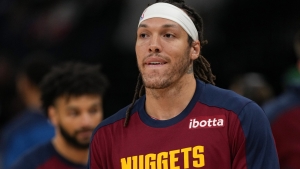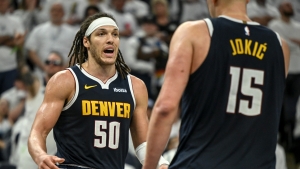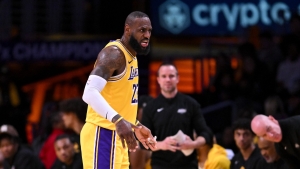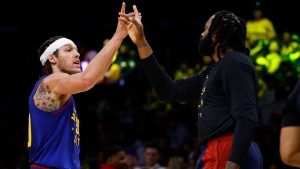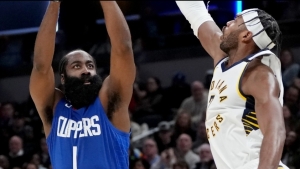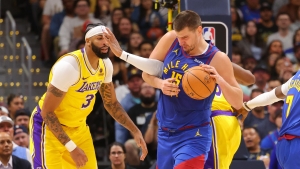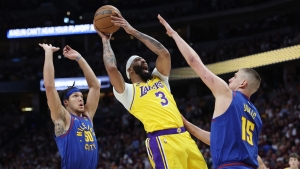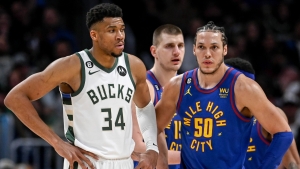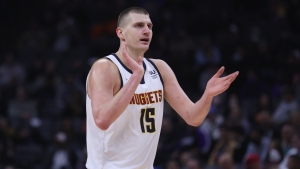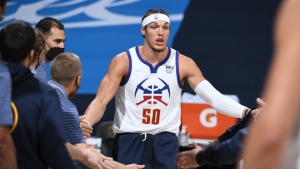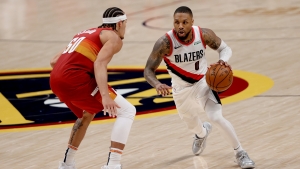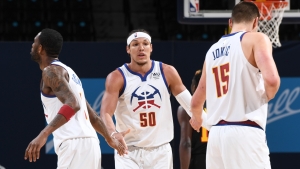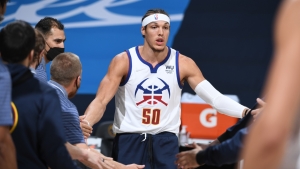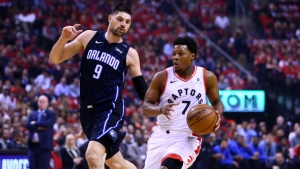The team from the Mile High City is rising again.
The Denver Nuggets are starting to resemble the team that put forth a thrilling and historic run to last season's Western Conference finals, the first in NBA history to win two series in a postseason when faced with a 3-1 deficit. They are 12-3 since February 27, tied with the Phoenix Suns for the league's best record over that period, and are the only team with three players (Nikola Jokic, Jamal Murray, Michael Porter Jr.) averaging better than 20 points per game during that time frame.
So, what has changed? How have the Nuggets elevated themselves back to a legitimate contender after spending the season's first two months mostly languishing in mediocrity?
It is no secret that offense is Denver's calling card, consistently ranking among the league's most efficient teams on that end even when hovering around .500 for nearly all of January and February. Defense is the true key to the Nuggets' success, however, and will ultimately be the determining factor to whether Mike Malone's crew wind up as serious title contenders or early playoff flameouts.
Simply put, the Nuggets are awfully hard to stop when they are able to stop opponents at a passable level. Denver is 24-1 this season when holding foes to a field goal percentage of 47.5 per cent or below, with only the NBA-leading Jazz (32-1) owning a superior winning percentage when keeping teams under that number. The Nuggets are 19-1 when limiting opponents to 106 points or fewer, just slightly behind Utah's 20-1 mark for the best in the league when doing so.
HIGHEST WIN PERCENTAGE WHEN OPPONENT FG PCT. UNDER .475:
Jazz 32-1 .970
Nuggets 24-1 .960
Bucks 25-4 .862
76ers 26-7 .788
Nets 22-6 .786
Suns 22-6 .786
The Nuggets were able to squeak by the Clippers in large part due to Jerami Grant's incessant hounding of Kawhi Leonard, who shot a combined 37 per cent in LA's four losses and finished with a 6-for-22 dud in the deciding Game 7. But Grant's free-agent departure to Detroit and the since-traded Gary Harris' inability to stay healthy has frequently left Denver without its top two defenders from last season, and a void Malone has often had difficulty trying to fill.
Need more proof? Well, just harken back to last year's playoff bubble. The Nuggets put on a defensive clinic at times in their conference semi-final series with the Clippers, holding them to 42 per cent shooting or below in all four victories. The Jazz shot a combined 51.6 per cent from the field while taking a 3-1 lead on Denver in that opening-round classic. In the final three games, they shot 44.4 per cent as the Nuggets stormed back to take the series.
Denver had no answer for the Lakers' interior game and abundance of size in the West finals, in which the eventual champions shot nearly 59 per cent from inside the 3-point line to win in five games.
Until now.
Aaron Gordon was not the biggest name to change uniforms at the trade deadline, but the former Orlando Magic forward could very well wind up being the most impactful of all the moves. What the Nuggets needed most of all was another Grant, someone with the size and athleticism to capably guard multiple positions, effectively get to the rim and offer at least a mild threat of perimeter scoring.
Gordon is not as good from the outside as Grant, but he is shooting a career-best 37.1 per cent from 3-point range and at just 25, there is still room to expand his game further. He is a superior rebounder and finisher, however, having shot a strong 65.1 percent at the rim for his career. And now playing alongside the premier passing big man of this generation in Jokic, there's reason to suggest that number can go up as well.
The Nuggets did not acquire Gordon for his offense, however. The Magic allowed 2.3 fewer points per 100 possessions this season with him on the court as opposed to him off it, and with a first-round matchup with either the Lakers or Clippers a real possibility, it was crucial that Denver added a player with the requisite size and skill to go head-to-head with Leonard or LeBron James.
It is an incredibly small sample size, but the returns have so far been smashingly successful. The Nuggets have opened the Gordon era with blowout wins over the Hawks and the admittedly depleted 76ers, and they are a plus-36 with their new acquisition on the floor over those two games.
With the defense seemingly upgraded and Porter's emergence as a legitimate third scoring option alongside the incomparable Jokic and the dynamic Murray, the Nuggets appear better equipped for an NBA Finals run after coming three wins short of getting there last season.
Now, Gordon isn't the solution for all of Denver's issues. For all the great things Jokic does, rim protection will never be one of them. The Nuggets have allowed opponents to shoot 62.6 per cent at the rim, with only New Orleans having yielded a higher rate, and they were routinely manhandled inside by the Lakers' big lineups in the West finals.
That looms as a potential problem again down the road, assuming the Lakers will have a healthy Anthony Davis for the playoffs, but one the Nuggets may have alleviated somewhat with the possibly under-the-radar deadline pickup of JaVale McGee. The veteran center provides the size and presence as an interior deterrent that Denver sorely lacked, though that benefit could come with a cost if it leads to Jokic playing less, or if he's alternatively moved to power forward, where his defensive limitations could be further exploited.
There are certainly worse problems to have, however, and there is little question the Nuggets got better at the deadline while many of their other chief competitors largely stood pat.
Buckle up, folks. The West's road to the NBA Finals just got a little more rocky.























